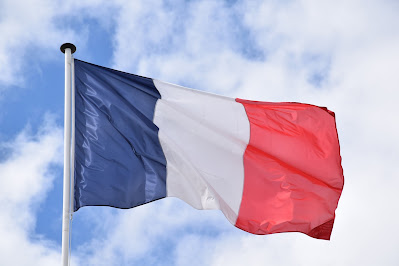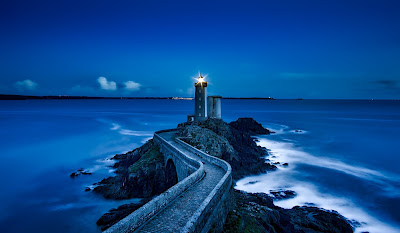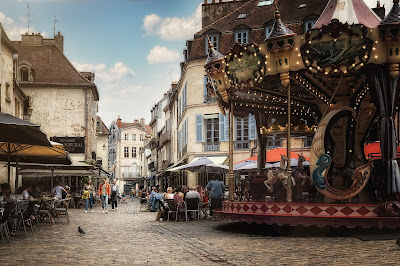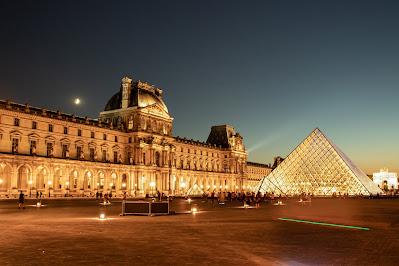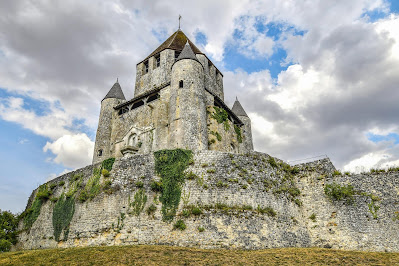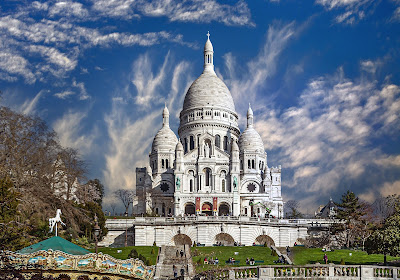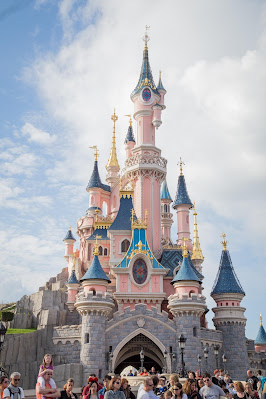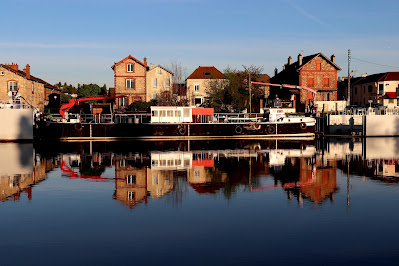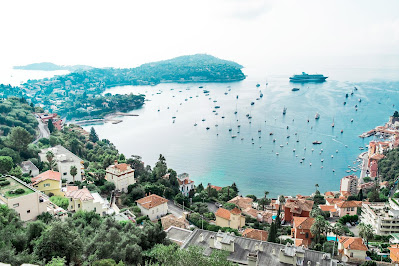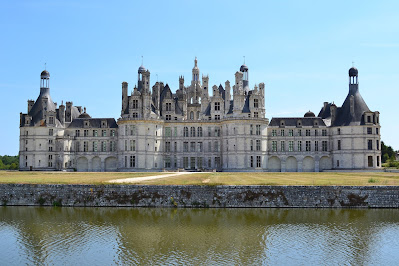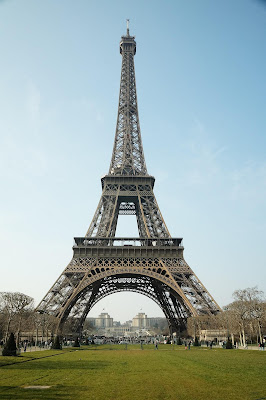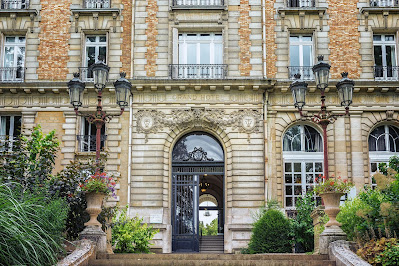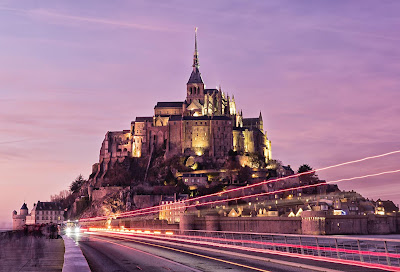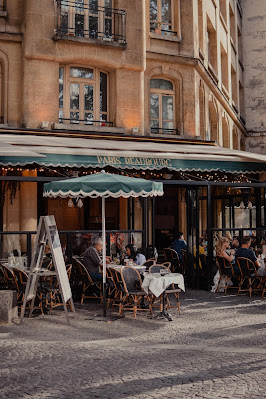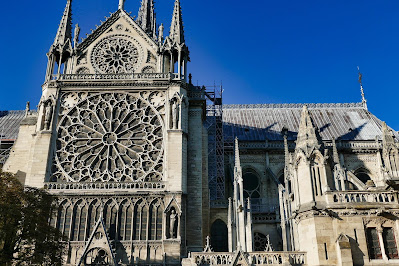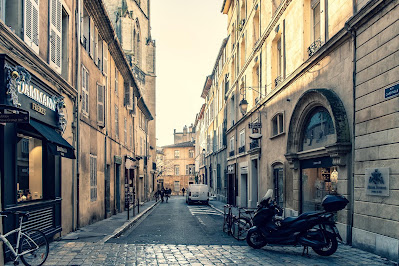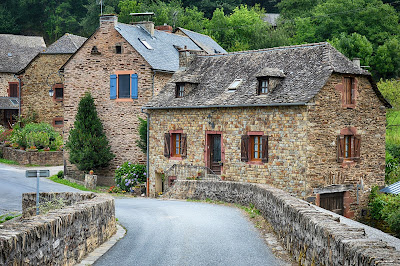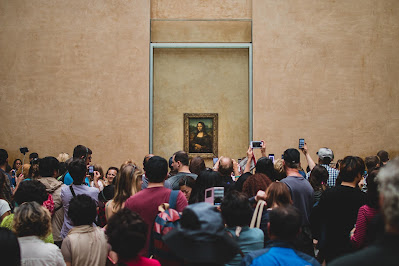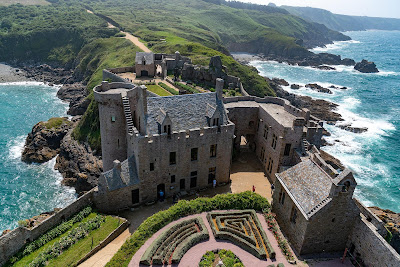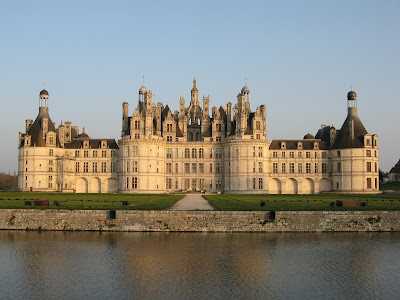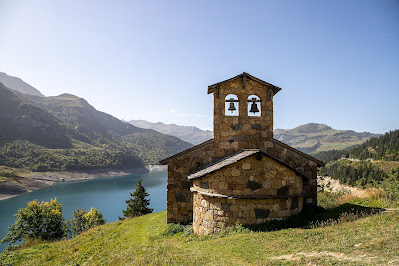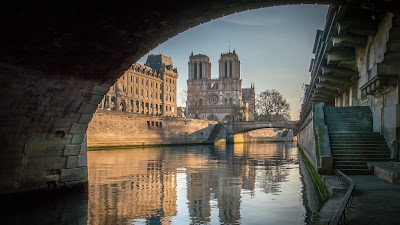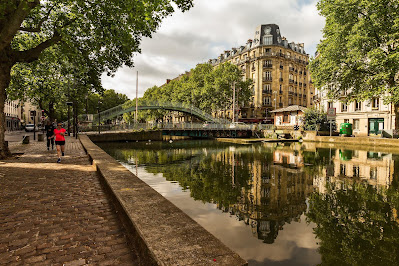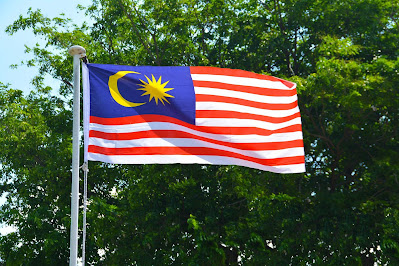All About France, Paris....
Area: 551,670 sq. km. (220,668 sq. mi.); largest west European country, about four-fifths the size of Texas.
Cities: Capital--Paris. Major cities--Marseille, Lyon, Toulouse, Strasbourg, Nice, Rennes, Lille, Bordeaux.
Terrain: Varied.
Climate: Temperate.
People
Nationality: Adjective--French.
Population (January 1, 2010 est.): 64.7 million (including overseas territories); 62.8 million (metropolitan).
Annual population growth rate (2009 est.): 0.5%.
Ethnic groups: Celtic and Latin with Teutonic, Slavic, North African, Sub-Saharan African, Indochinese, and Basque minorities.
Religion: Roman Catholic 85% (est.), Muslim 10% (est.), Protestant 2%, Jewish 1%.
Language: French.
Education: Years compulsory--10. Literacy--99%.
Health: Infant mortality rate (2009)--3.8/1,000.
Work force (2009): 28.1 million (preliminary): Services--74.7%; industry and commerce--22.0%; agriculture--3.2%.
Government Type:
Republic.
Constitution: September 28, 1958.
Branches: Executive--president (chief of state); prime minister (head of government). Legislative--bicameral Parliament (577-member National Assembly, 319-member Senate). Judicial--Court of Cassation (civil and criminal law), Council of State (administrative court), Constitutional Council (constitutional law).
Subdivisions: 22 administrative regions containing 96 departments (metropolitan France). Thirteen territories outside metropolitan France: four overseas departments which are also regions (French abbreviation is DOM-ROM)--Guadeloupe, Martinique, French Guiana, and Reunion; six overseas collectivities ("Collectivités d'Outre-mer" or COM)--French Polynesia, Wallis and Futuna Islands, Saint-Pierre and Miquelon, Saint-Martin and Saint-Barthelemy Island, and Mayotte, which in March 2009 voted to become a full overseas department, and is likely to be recognized as such in 2011; one overseas country of France ("Pays d'Outre-mer" or POM)--New Caledonia; and the French Southern and Antarctic Territories and the atoll of Clipperton.
Political parties:
Union for a Popular Movement (UMP--a synthesis of center-right Gaullist/nationalist and free-market parties); Socialist Party; New Center (former UDF centrists now affiliated with the UMP); Democratic Movement (former UDF centrists loyal to MoDem President Francois Bayrou); Communist Party; extreme right National Front; Greens; various minor parties.
Suffrage: Universal at 18.
Economy
GDP (2009): $2.66 trillion.
Avg. annual growth rate (2009): -2.5%, compared with 0.1% in 2008.
Per capita GDP at PPP (2009): $33,678.
Agriculture: Products--grains (wheat, barley, corn); wines and spirits; dairy products; sugar beets; oilseeds; meat and poultry; fruits and vegetables.
Industry: Types--aircraft, electronics, transportation, textiles, clothing, food processing, chemicals, machinery, steel.
Services: Types--Services to companies and individuals, financial and real estate activities, tourism and transportation
Trade: Exports (2009)--$482.3 billion (f.o.b.): automobiles, aircraft and aircraft components, pharmaceuticals, automobile equipment, iron and steel products, refined petroleum products, cosmetics, organic chemicals, electronic components, wine and champagne. Imports (2009)--$543.5 billion (f.o.b.): oil and natural gas, automobiles, aircraft and aircraft components, refined petroleum products, automobile equipment, pharmaceuticals, iron and steel products, and computers/computer-related products. Major trading partners--EU and U.S.
Exchange rate: U.S. $1=0.72 euro in 2009.
PEOPLE
Since prehistoric times, France has been a crossroads of trade, travel, and invasion. Three basic European ethnic stocks--Celtic, Latin, and Teutonic (Frankish)--have blended over the centuries to make up its present population. France's birth rate was among the highest in Europe from 1945 until the late 1960s. Since then, its birth rate has fallen but remains higher than that of most other west European countries. Traditionally, France has had a high level of immigration. More than 1 million Muslims immigrated to France in the 1960s and early 1970s from North Africa, especially Algeria. About 85% of the population is Roman Catholic, 10% Muslim, less than 2% Protestant, and about 1% Jewish. However, the government does not keep statistics on religious affiliation, and according to a January 2007 poll, 51% of respondents describe themselves as Catholic, and another 31% describe themselves as having no religious affiliation. In 2004, there were over 6 million Muslims, largely of North African descent, living in France. France is home to both the largest Muslim and Jewish populations in Europe.
Education is free, beginning at age 2, and mandatory between ages 6 and 16. The public education system is highly centralized. Private education is primarily Roman Catholic. Higher education in France began with the founding of the University of Paris in 1150. It now consists of 91 public universities and 175 professional schools, including the post-graduate Grandes Ecoles. Private, college-level institutions focusing on business and management with curriculums structured on the American system of credits and semesters have been growing in recent years.
The French language derives from the vernacular Latin spoken by the Romans in Gaul, although it includes many Celtic and Germanic words. Historically, French has been used as the international language of diplomacy and commerce. Today it remains one of six official languages at the United Nations and has been a unifying factor in Africa, Asia, the Pacific, and the Caribbean.
HISTORY
France was one of the earliest countries to progress from feudalism to the nation-state. Its monarchs surrounded themselves with capable ministers, and French armies were among the most innovative, disciplined, and professional of their day. During the reign of Louis XIV (1643-1715), France was the dominant power in Europe. But overly ambitious projects and military campaigns of Louis and his successors led to chronic financial problems in the 18th century. Deteriorating economic conditions and popular resentment against the complicated system of privileges granted the nobility and clerics were among the principal causes of the French Revolution (1789-94). Although the revolutionaries advocated republican and egalitarian principles of government, France reverted to forms of absolute rule or constitutional monarchy four times--the Empire of Napoleon, the Restoration of Louis XVIII, the reign of Louis-Philippe, and the Second Empire of Napoleon III. After the Franco-Prussian War (1870), the Third Republic was established and lasted until the military defeat of 1940.
World War I (1914-18) brought great losses of troops and material. In the 1920s, France established an elaborate system of border defenses (the Maginot Line) and alliances to offset resurgent German strength. France was defeated early in World War II, however, and was occupied in June 1940. That July, the country was divided into two: one section being ruled directly by the Germans, and a second controlled by the French ("Vichy" France) and which the Germans did not occupy. German and Italian forces occupied all of France, including the "Vichy" zone, following the Allied invasion of North Africa in November 1942. The "Vichy" government largely acquiesced to German plans, namely in the plunder of French resources and the forceful deportations of tens of thousands of French Jews living in France to concentration camps across Europe, and was even more completely under German control following the German military occupation of November 1942. Economically, a full one-half of France's public sector revenue was appropriated by Germany. After 4 years of occupation and strife in France, Allied forces liberated the country in 1944.
France emerged from World War II to face a series of new problems. After a short period of provisional government initially led by Gen. Charles de Gaulle, the Fourth Republic was set up by a new constitution and established as a parliamentary form of government controlled by a series of coalitions. French military involvement in both Indochina and Algeria combined with the mixed nature of the coalitions and a consequent lack of agreement caused successive cabinet crises and changes of government.
Finally, on May 13, 1958, the government structure collapsed as a result of the tremendous opposing pressures generated by 4 years of war with Algeria. A threatened coup led the Parliament to call on General de Gaulle to head the government and prevent civil war. Marking the beginning of the Fifth Republic, he became prime minister in June 1958 and was elected president in December of that year. The Algerian conflict also spurred decades of increased immigration from the Maghreb states, changing the composition of French society.
Seven years later, for the first time in the 20th century, the people of France went to the polls to elect a president by direct ballot. De Gaulle won re-election with a 55% share of the vote, defeating Francois Mitterrand. In April 1969, President de Gaulle's government conducted a national referendum on the creation of 21 regions with limited political powers. The government's proposals were defeated, and de Gaulle subsequently resigned. Succeeding him as president of France have been Gaullist Georges Pompidou (1969-74), Independent Republican Valery Giscard d'Estaing (1974-81), Socialist Francois Mitterrand (1981-95), neo-Gaullist Jacques Chirac (1995-2007), and center-right Nicolas Sarkozy (2007).
While France continues to revere its rich history and independence, French leaders have increasingly tied the future of France to the European Union (EU). France was integral in establishing the European Coal and Steel Community in 1951 and was among the EU's six founding states. During his tenure, President Mitterrand stressed the importance of European integration and advocated the ratification of the Maastricht Treaty on European economic and political union, which France's electorate narrowly approved in 1992.
Since the September 11, 2001 terrorist attacks in the U.S., France has played a central role in counterterrorism efforts. French forces participate in Operation Enduring Freedom and in the International Security Assistance Force (ISAF) for Afghanistan. France did not, however, join the coalition that liberated Iraq in 2003.
In October and November 2005, 3 weeks of violent unrest in France's largely immigrant suburbs focused the country's attention on its minority communities. In the spring of 2006, students protested widely over restrictive employment legislation. In May 2007, Nicolas Sarkozy was elected as France's sixth president under the Fifth Republic, signaling French approval of widespread economic and social reforms, as well as closer cooperation with the United States. After enacting several high-profile reforms during his first year in office, President Sarkozy scaled back his ambitious reform efforts as the worldwide economic crisis unfolded. By midway through his 5-year term, Sarkozy faced mounting pressure to revive the economy, lower unemployment, and reduce the government’s sizable budget deficit.
On the international front, President Sarkozy has reintegrated France into the North Atlantic Treaty Organization (NATO), confirmed France’s commitments to Afghanistan, and worked closely with the United States on the Iran nuclear issue. Although a 2005 French referendum was responsible for the defeat of a treaty to establish a constitution for Europe, France later backed the Lisbon Treaty--a main priority of Sarkozy during France's EU presidency in the latter half of 2008. The Lisbon Treaty took effect in December 2009. France continues to play a leading role in the EU, particularly in the development of a Common Security and Defense Policy (CSDP). In July 2008, France was instrumental in launching the Union for the Mediterranean (UM), a continuation of the EU Barcelona Process. France and Egypt held the first rotating co-presidency, which serves as a forum for political and economic cooperation between the EU and its Mediterranean neighbors.
GOVERNMENT
The constitution of the Fifth Republic was approved by public referendum on September 28, 1958. It greatly strengthened the powers of the executive in relation to those of Parliament. Under this constitution, presidents were elected directly for a 7-year term. Beginning in 2002, the presidential term of office was reduced to 5 years, and a constitutional reform passed on July 21, 2008 limits presidents to two consecutive terms in office. The next presidential and legislative elections are scheduled for 2012.
The main components of France's executive branch are the president, the prime minister and government, and the permanent bureaucracies of the many ministries. The president names the prime minister, presides over the cabinet, commands the armed forces, and concludes treaties. The president can submit questions to a national referendum and can dissolve the National Assembly. In certain emergency situations, with the approval of Parliament, the president may assume dictatorial powers and rule by decree. Led by a prime minister, who is the head of government, the cabinet is composed of a varying number of ministers, ministers-delegate, and secretaries of state. Traditionally, presidents under the Fifth Republic tended to leave day-to-day policy-making to the prime minister and government, and the 5-year term of office was expected to make presidents more accountable for the results of domestic policies. Nicolas Sarkozy has been a hands-on manager and policymaker.
Parliament meets for one 9-month session each year. Under special circumstances the president can call an additional session. Under the constitution, the legislative branch has few checks on executive power; nevertheless, the National Assembly can still cause a government to fall if an absolute majority of the total Assembly membership votes to censure. The Parliament is bicameral, with a National Assembly and a Senate. The National Assembly is the principal legislative body. Its deputies are directly elected to 5-year terms, and all seats are voted on in each election. Senators are chosen by an electoral college and, under new rules passed in 2003 to shorten the term, serve for 6 years, with one-half of the Senate being renewed every 3 years. (As a transitional measure in 2004, 62 Senators were elected to 9-year terms, while 61 were elected to 6-year terms; subsequently, all terms will be 6 years.) The Senate's legislative powers are limited; the National Assembly has the last word in the event of a disagreement between the two houses. The government has a strong influence in shaping the agenda of Parliament, although the constitutional reform passed in July 2008 granted new authority to the Parliament to set its own agenda. The government also can declare a bill to be a question of confidence, thereby linking its continued existence to the passage of the legislative text; unless a motion of censure is introduced and voted, the text is considered adopted without a vote. The constitutional reform passed in July 2008 limited the process to the vote of the national budget, the financing of the social security, and to one bill per session of the Parliament. As of September 2009, impact assessment is mandatory for all draft laws going to the Council of State and the Parliament.
A distinctive feature of the French judicial system is that the Constitutional Council protects basic rights when they might be potentially violated by new laws, and the Council of State protects basic rights when they might be violated by actions of the state. The Constitutional Council examines legislation and decides whether it conforms to the constitution. Unlike the U.S. Supreme Court, it considers only legislation that is referred to it by Parliament, the prime minister, or the president. Moreover, it considers legislation before it is promulgated. The Council of State has a separate function from the Constitutional Council and provides recourse to individual citizens who have claims against the administration. The Ordinary Courts--including specialized bodies such as the police court, the criminal court, the correctional tribunal, the commercial court, and the industrial court--settle disputes that arise between citizens, as well as disputes that arise between citizens and corporations. The Court of Appeals reviews cases judged by the Ordinary Courts.
Traditionally, decision-making in France has been highly centralized, with each of France's departments headed by a prefect appointed by the central government. In 1982, the national government passed legislation to decentralize authority by giving a wide range of administrative and fiscal powers to local elected officials. In March 1986, regional councils were directly elected for the first time, and the process of decentralization continues, albeit at a slow pace.
POLITICAL CONDITIONS
Nicolas Sarkozy assumed office on May 16, 2007 as France's sixth president under the Fifth Republic, the last day of Jacques Chirac's official term. In the April 22, 2007 first round of presidential elections, Sarkozy, the leader of the center-right Union for a Popular Movement (UMP) party, placed first; Socialist candidate Segolene Royal placed second; centrist Francois Bayrou placed third; and extremist Jean-Marie Le Pen placed fourth out of a field of 12 candidates. Sarkozy prevailed in the May 6, 2007 second round, defeating Royal by a 53.06% to 46.94% margin. Royal's loss marked the third straight defeat for the Socialist candidate in presidential elections.
In electing Nicolas Sarkozy, French voters endorsed the wide-ranging program of reforms--including market-oriented social and economic reforms--that were the focal point of his campaign, implicitly giving him the green light to try and implement these reforms quickly, and allowing a way forward for overcoming France's 2005 rejection of the EU constitutional treaty. By embracing a figure long tagged as "pro-American," French voters also expressed their desire to renew trust in the U.S.-France relationship. During the campaign Sarkozy often ended his stump speeches--evoking Martin Luther King--by calling for a "French dream" of social equality, social mobility, and equal opportunity, and his first speech as President-elect assured his "American friends" that they could rely on France's friendship.
After his inauguration, President Sarkozy focused his first months in office on improving the performance of France's economy through liberalization of labor markets, higher education, and taxes. Sarkozy named Francois Fillon Prime Minister. Jean-Louis Borloo became the second-highest ranking figure in the government, presiding over an expanded Ministry of Environment, renamed the Ministry of Ecology and Sustainable Planning.
Legislative elections held on June 10 and 17, 2007 gave the UMP a large parliamentary majority. The UMP reinforced its ascendance over the Socialists by winning the June 7, 2009 European Parliament election with 27.88% of the vote, an increase of more than 11 percentage points over 2004. The Socialists finished a distant second, in a virtual tie with Europe Ecology, the French Green party. In the March 2010 regional elections, the Socialist Party won a majority of seats in 21 of the 22 regions of mainland France, marking a definitive resurgence for the main opposition party.
During his first year and a half in office, Sarkozy eliminated income taxes on overtime hours, lengthened the contribution period for retirees to receive full pensions, and established a "minimum service" requirement on strike days, among other reforms. He also completed a major revision of the French constitution, which gave Parliament more oversight responsibility, particularly with respect to approval of long-term French military deployments abroad. French and EU analysts stress that longer-term reform measures must focus on reducing the future burden of ballooning public pension and health care budgets, as well as reducing labor-related taxes. Against a backdrop of gloomy economic news starting in late 2008, Sarkozy appears to have placed his reform agenda on a temporary hiatus. In light of the financial crisis, the Sarkozy government has been active in pursuing austerity measures in order to reduce government deficits. Despite low public approval ratings, however, President Sarkozy is governing at a time when the main opposition, the Socialist Party (PS), is in the minority in both houses of Parliament.
ECONOMY
With a GDP of $2.66 trillion, France is the world’s fifth-largest economy. It has substantial agricultural resources, a large industrial base, and a highly skilled work force. A dynamic services sector accounts for an increasingly large share of economic activity and is responsible for nearly all job creation in recent years. Real GDP fell by 2.5% in 2009. While growth picked up in the course of 2009, with 1.2% growth in the third quarter and 2.0% in the fourth quarter, it slowed down through the first quarter of 2010 (0.1%). The European Commission, Organization for Economic Cooperation and Development (OECD), and International Monetary Fund (IMF) have forecast GDP growth between 1.3% and 1.7% by the end of 2010; they estimated slightly higher growth for 2011, between 1.5% and 2.1%.
Government economic policy aims to promote investment and domestic growth in a stable fiscal and monetary environment. Creating jobs and reducing the high unemployment rate has been a top priority. The unemployment rate in metropolitan France increased to 9.5% in the first quarter of 2010, up from 9.2% in the third quarter of 2009. France joined 10 other European Union countries in adopting the euro as its currency in January 1999. Since then, monetary policy has been set by the European Central Bank in Frankfurt. On January 1, 2002, France, along with the other countries of the euro zone, dropped its national currency in favor of euro bills and coins.
Despite significant reform and privatization over the past 15 years, the government continues to control a large share of economic activity: Government spending, at 55.6% of GDP in 2009, is among the highest in the G-7. The government continues to own shares in corporations in a range of sectors, including banking, energy production and distribution, automobiles, transportation, and telecommunications.
In 2008, in a move to advance France's competitiveness, the National Assembly passed four bills introduced by the French government to modernize the economy and improve the labor market. In October 2007, under President Nicolas Sarkozy's impetus, overtime work beyond the 35-hour work week was exempted from income taxes and payroll taxes, a move to encourage work and to increase work time. In July 2009, meanwhile, the French Parliament approved a controversial bill allowing more businesses to stay open on Sundays. Membership in France's labor unions accounts for approximately 5% of the private sector work force and is concentrated in the manufacturing, transportation, and heavy industry sectors. Most unions are affiliated with one of the competing national federations, the largest and most powerful of which are the communist-dominated General Labor Confederation (CGT), the Workers' Force (FO), and the French Democratic Confederation of Labor (CFDT).
France has been very successful in developing dynamic telecommunications, aerospace, and weapons sectors. With virtually no domestic oil production, France has relied heavily on the development of nuclear power, which now accounts for about 80% of the country's electricity production.
Trade
France is the second-largest trading nation in Western Europe (after Germany). France ran a $61.2 billion trade deficit in goods (Customs basis) in 2009. Total trade in goods for 2009 amounted to $1.006 trillion, over 53% of GDP, 61% of which was with the other EU-27 countries. In 2009, U.S.-France trade in goods and services totaled $154 billion. U.S. industrial chemicals, aircraft and engines, electronic components, telecommunications, computer software, computers and peripherals, analytical and scientific instrumentation, medical instruments and supplies, and broadcasting equipment are particularly attractive to French importers. Total French trade of goods and services was $1.276 trillion in 2009.
Principal French exports to the United States are aircraft and engines, beverages, electrical equipment, chemicals, cosmetics, and luxury products. France is the eighth-largest trading partner of the United States.
Agriculture
France is the European Union's leading agricultural exporter, accounting for about 17% of all agricultural land within the EU-27. The share of agriculture value-added in GDP has shown a steady decline since the early 1980s, representing less than 1.2% of France's GDP in 2009. Agricultural production not including subsidies fell 8.5% from the preceding year to €60.6 billion ($80 billion) in 2009. Northern France is characterized by large grain farms. Dairy, pork, poultry, and apple production is concentrated in the western region. Beef production is located in central France, while the production of corn, fruits, vegetables, and wine ranges from central to southern France. France is expanding its forestry and fishery industries. France remains extremely cautious about the cultivation of genetically modified (GM) plants at the domestic and EU levels. France is a proponent of the European preference principle and is attentive to protecting its interests in further agricultural trade liberalization at the EU and World Trade Organization (WTO) levels.
France is the world's second-largest agricultural producer, after the United States. The destination of 70% of its exports is other EU member states. Wine and beverages, wheat, meat, and dairy products are the principal exports. The United States, the sixth-largest exporter to France in recent data, faces stiff competition from domestic production, other EU member states, and third countries. U.S. agricultural exports to France--totaling $1.28 billion in 2008--consisted primarily of tree nuts, planting seeds, hides and skins, tobacco, red meats, seafood, hardwood lumber, and grapefruits. French agricultural exports to the United States amounted to $2.3 billion in 2008, half of it being wine and spirits.
FOREIGN RELATIONS
France plays an influential global role as a permanent member of the United Nations Security Council, NATO, the G-8, the G-20, the EU, the Organization for Security and Cooperation in Europe (OSCE), the WTO, la Francophonie, and other multilateral institutions. Among NATO members, France is second only to the United States in terms of troops deployed abroad. The French took over the rotating EU presidency for July-December 2008, with a focus on immigration, energy, the environment, and European defense during their term. As EU president, French President Sarkozy played a prominent role negotiating a cease-fire during the August 2008 Georgia crisis, generating an international response to the financial crisis, and working toward a cease-fire in Gaza. In 2009, Sarkozy continued to project strong leadership on the international stage by pushing in the G-20 to eradicate tax havens and limit bonuses for bankers. The Sarkozy administration is also actively preparing for the 2011 French presidency of the G-8 and G-20.
A charter member of the United Nations, France is a member of most of its specialized and related agencies. France is also America's oldest ally; French military intervention was instrumental in helping Britain's American colonies establish independence. Because many battles in which the United States was involved during World War I and World War II took place in France, more American soldiers have been killed on French soil than on that of any other foreign country.
France is a leader in Western Europe because of its size, location, and large economy, membership in European organizations, strong military posture, and energetic diplomacy. France generally has worked to strengthen the global economic and political influence of the EU and its role in common European defense. It views Franco-German cooperation and the development of a Common Security and Defense Policy (CSDP) with other EU members as the foundation of efforts to enhance European security.
France supports Quartet (U.S.-EU-Russia-UN) efforts to implement the Middle East roadmap, which envisions establishment of a Palestinian state, living side-by-side in peace and security with Israel. Recognizing the need for a comprehensive peace agreement, France supports the involvement of all Arab parties and Israel in a multilateral peace process. France also supports an easing of the Gaza blockade, stating that it will serve the interest of all parties concerned in the conflict.
Since 2003, France has supported four UN Security Council (UNSC) resolutions on Iraq, including UNSCR 1546, which laid out a timetable for Iraq's political transition and reaffirmed UNSC authorization for a Multinational Force in Iraq, at the invitation of the Iraqi government, to stabilize the country. France contributed to the $315 million EU contribution to Iraq reconstruction in 2003. After the Iraqi Interim Government took power, France agreed to substantial debt relief and offered police training to Iraqi security forces. Since 2006, France has actively and repeatedly publicly stressed the danger of a nuclear-armed Iran and worked with the U.S. and other members of the P5+1 group (China, Russia, the U.K., the U.S., and Germany) to demand that Iran end its enrichment-related and preprocessing activities. In June 2010 France actively supported and voted for UNSC Resolution 1929 regarding sanctions on Iran, as a means to persuade Iran to live up to its international obligations. In May 2009, France opened its first permanent military base in the Gulf region, in the United Arab Emirates.
France continues to play an important role in Africa, especially in its former colonies, through aid programs, commercial activities, military agreements, and cultural impact. The Sarkozy government announced a change in its sub-Saharan African policy shortly after it came to power, intending to modernize and rationalize relations in a future-oriented manner. The French military presence is likely to diminish, with an emphasis on cooperating with Africa's sub-regional organizations such as Southern African Development Community (SADC), Economic Community of West African States (ECOWAS), and Intergovernmental Authority on Development (IGAD). France's military bases in Cote d'Ivoire, Djibouti, Gabon, and Senegal, and its long-term military presence in Chad may therefore be reduced in size, consolidated, or eliminated in the years ahead. Nonetheless, France is likely to continue to play an important role in promoting stability in the region. For example, French support to the Government of Chad was crucial in 2008 to fending off a rebel attack, and in 2007, France played a leading role in the EU's formation of a peacekeeping mission in Chad and the Central African Republic designed to complement international efforts in Sudan and Darfur. In March 2009, this mission transitioned into a UN operation (MINURCAT), with France continuing to play a leadership role. France was a strong voice in the EU denouncing the violence of the junta leaders in Guinea in late October 2009. It was essential in the decision to pass EU sanctions against the government of Moussa Dadis Camara, which included an arms embargo.
France has extensive political and commercial relations with Asian countries, including China, Japan, and Southeast Asia, as well as an increasing presence in regional forums. France is seeking to broaden its commercial presence in China and will pose a competitive challenge to U.S. business, particularly in aerospace, high-tech, and luxury markets. In Southeast Asia, France was an architect of the 1991 Paris Accords, which ended the conflict in Cambodia.
SECURITY ISSUES
French military doctrine is based on the concepts of national independence, nuclear deterrence, and military sufficiency. France is a founding member of NATO and has worked actively with Allies to adapt NATO, internally and externally, to the post-Cold War environment. In 1966, de Gaulle withdrew France from NATO's military bodies, although France remained a full participant in the alliance's political councils. In December 1995, France partially reversed this decision by increasing its participation in NATO's military wing, including the Military Committee. In April 2009, Sarkozy completed the process by announcing that France would once again rejoin the NATO integrated military command in Brussels.
France released a white paper on defense in June 2008 that assessed foreign and domestic defense and security issues. The white paper was intended to provide a comprehensive security strategy for the next 25 years, reflecting a changed 21st century security environment, and to outline restructuring proposals to make the French military more flexible, technologically advanced, and better able to coordinate with allies such as the U.S. and multilateral organizations such as the EU, NATO, and the UN. Consistent with the white paper, France has undertaken a major restructuring to develop a professional military that will be smaller, more rapidly deployable, and better tailored for operations outside of mainland France. Key elements of the restructuring include reducing personnel, bases, and headquarters and rationalizing equipment and the armament industry. French active-duty military number about 350,000 (including Gendarmes). France completed the move to all-professional armed forces when conscription ended on December 31, 2002.
France has actively and heavily participated in a variety of peacekeeping/coalition efforts in Africa, the Middle East, and the Balkans, often taking the lead in these operations. France also remains a firm supporter of the OSCE and other efforts at cooperation.
France places a high priority on arms control and non-proliferation. After conducting a final series of six nuclear tests, the French signed the Comprehensive Test Ban Treaty in 1996 and in March 2009 agreed on compensation for victims of French nuclear tests. France has implemented a moratorium on the production, export, and use of anti-personnel landmines and supports negotiations leading toward a universal ban. France is an active participant in the major supplier regimes designed to restrict transfer of technologies that could lead to proliferation of weapons of mass destruction: the Nuclear Suppliers Group, the Australia Group (for chemical and biological weapons), the Non-Proliferation Treaty, and the Missile Technology Control Regime. France participates actively in the Proliferation Security Initiative, and is engaged with the U.S., both bilaterally and at the International Atomic Energy Agency (IAEA) and Organization for the Prohibition of Chemical Weapons (OPCW), to curb nuclear, biological, and chemical (NBC) proliferation. France has joined with the U.S., Germany, and the other three permanent members of the UN Security Council to offer a package of incentives and disincentives to Iran to halt its uranium enrichment activities. France, along with other EU member states, was instrumental in pressing for Europe's adoption of UNSCR 1803, calling for extra vigilance over Iranian banks involved in proliferation activities. France has also signed and ratified the Chemical Weapons Convention. France maintains a color-coded security system, similar to that of the U.S., consisting of yellow, orange, red, and scarlet threat levels.
U.S.-FRENCH RELATIONS
Relations between the United States and France are active and friendly. Mutual visits by high-level officials are conducted frequently. Bilateral contact at the cabinet level has traditionally been active. France and the United States share common values and have parallel policies on most political, economic, and security issues. Differences are discussed frankly and have not generally been allowed to impair the pattern of close cooperation that characterizes relations between the two countries.
France is one of NATO's top five troop contributors. The French support NATO modernization efforts and are leading contributors to the NATO Response Force (NRF). France is keen to build European defense capabilities, including through the development of EU battle-group sized force packages and joint European military production initiatives. President Sarkozy supports development of a European defense that complements and reinforces NATO, which remains at the core of transatlantic security. The President has underscored the French commitment to complete NATO's mission in Afghanistan, where some 2,800 French troops served as of April 2009. In June 2008 Paris hosted the successful Afghanistan Support Conference, where international donors pledged a total of $21 billion to help develop Afghan infrastructure and to combat drugs, violence, and poverty.
France is a close partner with the U.S. in counterterrorism efforts. It cooperates with the U.S. to monitor and disrupt terrorist groups and has processed numerous U.S. requests for information under the Mutual Legal Assistance Treaty. French intelligence and security officials continue to actively investigate and prosecute cases of extremism. The French judiciary in December 2007 tried and convicted five French former Guantanamo detainees on terrorism charges. France is a strong partner in multiple non-proliferation fora and is a key participant in the Proliferation Security Initiative. As one of the P5+1 powers and as a leader of the EU, France is working to prevent Iran from developing nuclear weapons.
France opposed the use of force in Iraq in March 2003 and did not join the U.S.-led coalition that liberated the country from the dictatorial rule of Saddam Hussein. Despite differences over Iraq, the U.S. and France continue to cooperate closely on many issues, most notably in combating terrorism, efforts to stem the proliferation of weapons of mass destruction (WMD), and on regional problems, including in Africa, Lebanon, and Kosovo. On Iraq, the French agreed to generous debt relief for Iraq in Paris Club negotiations and accepted the establishment of a NATO training mission there. President Sarkozy traveled to Baghdad in February 2009, turning the page in France’s relations with Iraq.
In the Israeli-Palestinian conflict, France fully supports U.S. engagement in the peace process and President Sarkozy called upon Israelis and Palestinians to make 2009 “the year of peace.” He has repeatedly emphasized his admiration of Israel and support for its security balanced with calls for Israel's full respect of commitments under the Middle East roadmap with respect to settlements and restrictions on Palestinian movement within the occupied territories. France hosted a donors’ conference for the Palestinian Authority in December 2007, and President Sarkozy was active in developing a cease-fire during the Gaza fighting at the end of 2008.
The U.S. and France have worked closely to support a sovereign and independent Lebanon, free of Syrian domination. The U.S. and France co-sponsored in September 2004 UNSCR 1559, which called for full withdrawal of Syrian forces, a free and fair electoral process, and disbanding and disarmament of all Lebanese and non-Lebanese militias. In the wake of the assassination of former Lebanese Prime Minister Rafiq Hariri in February 2005, the U.S. and France reiterated calls for a full, immediate withdrawal of all Syrian troops and security services from Lebanon. France also co-sponsored UNSCR 1701 and was one of the leading countries in Europe working to end hostilities between Israel and Hizballah in 2006 by committing 2,000 troops to UNIFIL-plus. Strong French backing led to adoption of UNSCR 1757 establishing a Special Tribunal for Lebanon to prosecute the perpetrators of the Hariri assassination and other killings of critics of Syria's interference in Lebanon. French efforts in Lebanon are focused on maintaining stability and promoting national reconciliation consistent with relevant UNSCRs. President Sarkozy's decision to pursue a rapprochement with Syria following the Doha accord to end fighting in Lebanon in 2008 is also reportedly contingent upon good-faith Syrian efforts to normalize relations with Lebanon; the two exchanged ambassadors in 2009.
Trade and investment between the U.S. and France are strong. On average, over $1 billion in commercial transactions including sales of U.S. and French foreign affiliates take place every day, with the U.S. being France's eighth-ranked supplier and its eighth-largest customer. France ranks as the United States' eighth-largest trading partner for total goods (imports and exports). There are approximately 2,300 French subsidiaries in the U.S. that provide more than 520,000 jobs and that generate an estimated $235 billion in turnover. The U.S. is the top destination for French investments worldwide. Concurrently, the U.S. is the largest foreign investor in France, employing over 650,000 French citizens with aggregate investment estimated at $75 billion in 2008.
There are so many fascinating cities in this country and around the world. New York, Chicago, San Francisco, Miami, London, Stockholm, and many others fall into that category as does Paris, France. Paris is amazing! And photographic opportunities abound. What most visitors find (to their consternation), is they did not schedule enough time to experience all that Paris has to offer. In our modest Paris gallery, we try to provide a taste of the essence of Paris.
With over the 2.15 million residents, Paris is the largest city of France, and after London the biggest city of Western Europe. Besides London, New York and Tokyo is Paris one of the four world cities. Because of the gorgeous river Seine, Paris is split up in two parts. There are many sight seeings in Paris like: Notre Dame, Eiffel Tour, Arc de Triomphe, museum La Louvre and the very famous Champs-Elyseés street. All the attractions are very good accessible by train, bus and by very famous metropolitan areas from Paris.
Bateau-mouche and barges on the Seine River, Paris
This Cable-Stayed Bridge Project was completed in January 2005. This project is being financed privately. This project has the highest bridge piers in world. Thus the title of the Highest Bridge in the World. The tallest will be 240 meters high. Overall height an outstanding 336.4 meters. This project will consist of seven separate cable-stays.
The structural solution follows from the latter philosophical standpoint. The bridge has the optimum span between cable-stayed columns. It is delicate, transparent, and uses the minimum material, which makes it less costly to construct. Each of its sections spans 350 meters and its columns range in height from 75 meters to 235 meters – higher than the Eiffel Tower – with the masts rising a further 90 meters above the road deck.
To accommodate the expansion and contraction of the concrete deck, each column splits into two thinner, more flexible columns below the roadway, forming an A-frame above deck level. This structure creates a dramatic silhouette – and crucially it makes the minimum intervention in the landscape.
Construction Date: 2001 Completion Date: 2005 Statistics: Length: 2.5 km…”
There are countless ways to entertain yourself in Paris! There are many beautiful things to see, there are lot's of restaurants, clubs, pubs, theatres and cinemas. The most famous bars and clubs are located in the street of the Moulin Rouge. With 8000 different restaurants, you have a lot of choice with different kind of rates. The meals in France are in generally delicious! The French cuisine is widely considered to be among of the best in the world!
